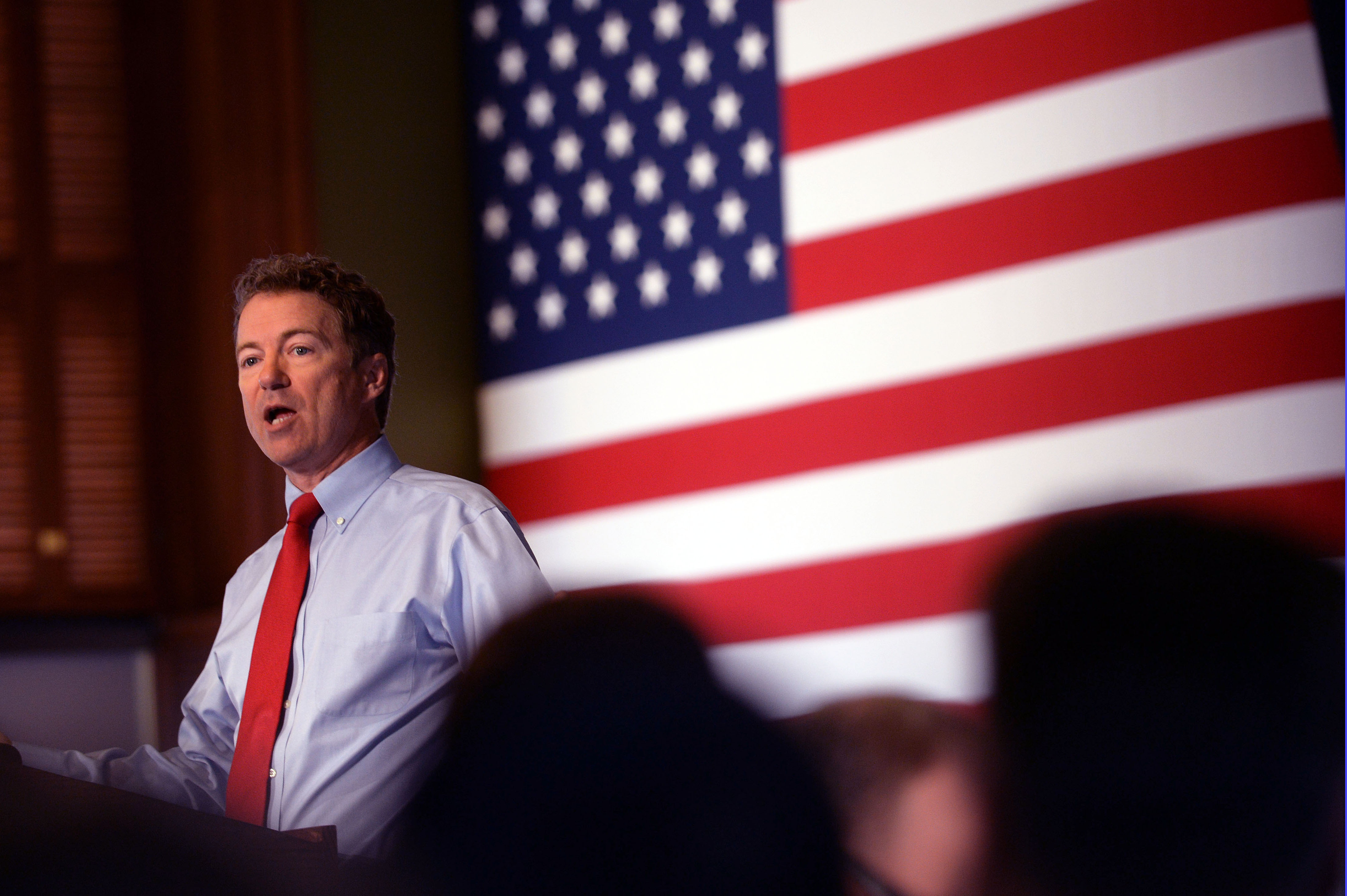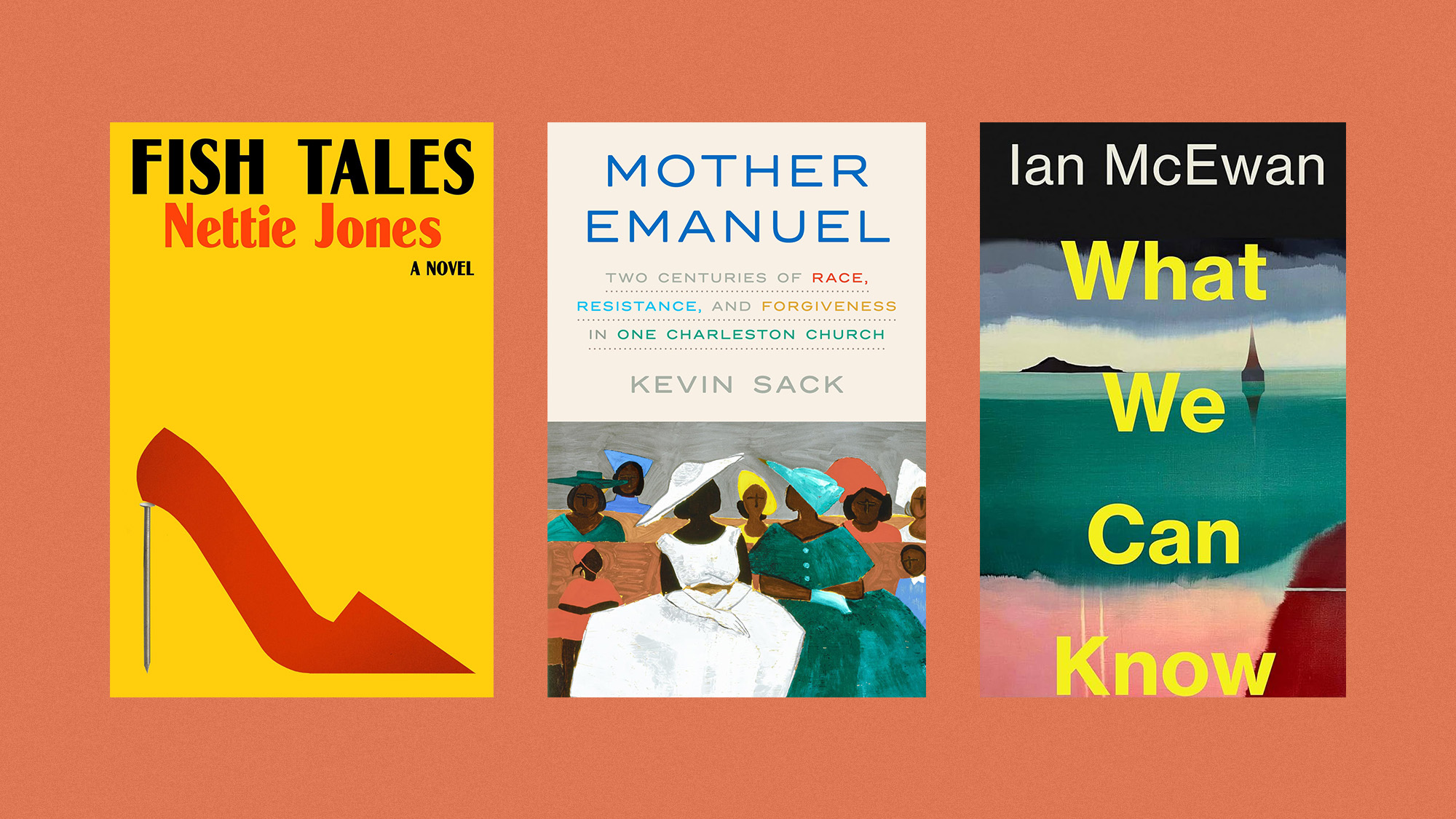A millennial libertarian's advice for Rand Paul
Stay true to yourself, senator!


There's an old joke that libertarians are just Republicans who like pot. As a libertarian, I've had this rather unfunny joke told to me many, many times.
The reality, of course, is quite a bit more nuanced. While libertarians do tend to align with Republicans (or at least their rhetoric) on fiscal issues, wanting to end the drug war is hardly the only place we diverge from GOP orthodoxy. My own elevator pitch for libertarianism is that I want our government out of your church, your bedroom, your wallet, Wall Street's pocket, and the Middle East — and as you can probably imagine, that's not going to end up in the Republican Party platform next fall.
So as Sen. Rand Paul tosses his hat into the presidential race, I don't have any illusions that he'll meet my libertarian ideals. In fact, Paul himself has repudiated the "libertarian" label, saying during his 2010 Senate race that his GOP opponents "thought all along that they could call me a libertarian and hang that label around my neck like an albatross, but I'm not a libertarian."
The Week
Escape your echo chamber. Get the facts behind the news, plus analysis from multiple perspectives.

Sign up for The Week's Free Newsletters
From our morning news briefing to a weekly Good News Newsletter, get the best of The Week delivered directly to your inbox.
From our morning news briefing to a weekly Good News Newsletter, get the best of The Week delivered directly to your inbox.
Indeed, despite his pedigree — or, if we're talking practical politics given the Republican National Committee's history of royally screwing over Ron Paul and his grassroots supporters, because of his pedigree — the most Paul the Younger is willing to say is that he's a "constitutional conservative" who is also "libertarian-ish."
That's actually a pretty fair label. While some of Paul's foreign policy moves have raised doubts among libertarians (myself included), Rand's record in the Senate is libertarian-ish. Heck, during his drones filibuster, Paul actually called the presidency "criminal," paraphrasing Charles Pierce in Esquire to say that every "four years we elect a new criminal because that's become the precise job description." Rand isn't Ron, to be sure, but I can't imagine any other serious presidential contender offering a systemic, nonpartisan critique of the executive branch like that.
Likewise, Paul's efforts in outreach to the black community, his early and explicit condemnation of racist police misconduct in Ferguson, and his bipartisan work on criminal justice reform all distinguish him from the Republican field; and Paul's continued focus on these topics is commendable.
It's also "interesting" — or at least, that seems to be the general consensus. Rand Paul is "the most interesting man in politics" twice over, "the most interesting man in the Senate," and — well, pretty much the most interesting everything. (As of this month, he has also taken the title of "most interesting man in political fashion," which is a very generous way of describing those mock turtlenecks.)
A free daily email with the biggest news stories of the day – and the best features from TheWeek.com
But as Paul tries to maintain his libertarian-ish balancing act, he runs the risk of fulfilling that "Republican who likes pot" stereotype if his (laudable) criminal justice reforms are the only major difference he maintains compared to the mainline GOP.
Nowhere is this truer than in foreign policy. For example, Paul recently signed on to the public letter Sen. Tom Cotton wrote with the intent of undermining the Iran negotiations. Though Paul's stated reason for signing the letter was significantly different, and he has taken a more moderate, pro-diplomacy approach to the Iran deal, his current stance toward Iran seems more aggressive than his past statements on the subject.
And then there's the military budget debacle, in which Paul proposed offsetting increases to the Pentagon budget with cuts from other departments. His plan had the merit of forcing fellow presidential contenders Ted Cruz and Marco Rubio to reveal that they prioritize increasing military spending over a balanced budget, but to many it contrasted with his previous calls for significant Pentagon budget cuts.
Ironically, even as these moves raise questions among libertarians, they remain unlikely to win Paul even the tolerance of neoconservatives. Since Paul's announcement earlier this week, the uber-hawks have made clear that they do not and will not support him for the nomination, no matter how many Cotton letters he signs. He may only be libertarian-ish, but that's more than enough liberty talk for a certain bomb-happy subset of the GOP.
This opposition immediately kicked off a $1 million ad campaign funded by the Foundation for a Secure and Prosperous America, a shadowy group which reportedly has ties to the Bushes. As Daniel Larison argues at The American Conservative, these "focused attacks on Paul confirm that there was never any use in trying to placate and win over [pro-war] hard-liners. They were always going to come after Paul because of what they think he represents."
Larison is right, and he's also right when he adds that Paul's hobnobbing with Cotton & Co. "undercut the rationale for Paul's candidacy."
Because the whole point of Rand Paul running, as his own announcement video put it, is for him to be "a different kind of Republican." But if he wants to stay interesting, he needs to stay different — and being "just a Republican who likes pot" isn't different enough.
Granted, Paul will have to do some serious politicking to win the White House and avoid the aforementioned royal screwing the RNC perpetually planned for his father. That's an unfortunate but inescapable fact of aiming for the GOP nod at this point in time, and though I can't say I like it, I don't deny its necessity. There's a fine line between reassuring traditional defense-oriented Republicans that he can be trusted as commander-in-chief and risking the loss of support from the libertarian following that got him where he is today.
But it would be a grave error of principle and politics if, in pursuit of that goal, Rand Paul lost track of the distinctiveness which has made him so interesting — and potentially capable of expanding the Republican Party.
Bonnie Kristian was a deputy editor and acting editor-in-chief of TheWeek.com. She is a columnist at Christianity Today and author of Untrustworthy: The Knowledge Crisis Breaking Our Brains, Polluting Our Politics, and Corrupting Christian Community (forthcoming 2022) and A Flexible Faith: Rethinking What It Means to Follow Jesus Today (2018). Her writing has also appeared at Time Magazine, CNN, USA Today, Newsweek, the Los Angeles Times, and The American Conservative, among other outlets.
-
 Received a gift card this holiday season? Here’s how to maximize it.
Received a gift card this holiday season? Here’s how to maximize it.The Explainer Make the most of your present
-
 ‘Lumpy skin’ protests intensify across France as farmers fight cull
‘Lumpy skin’ protests intensify across France as farmers fight cullIN THE SPOTLIGHT A bovine outbreak coupled with ongoing governmental frustrations is causing major problems for French civil society
-
 The best books of 2025
The best books of 2025The Week Recommends A deep dive into the site of a mass shooting, a new release from the author of ‘Atonement’ and more
-
 Has Zohran Mamdani shown the Democrats how to win again?
Has Zohran Mamdani shown the Democrats how to win again?Today’s Big Question New York City mayoral election touted as victory for left-wing populists but moderate centrist wins elsewhere present more complex path for Democratic Party
-
 Millions turn out for anti-Trump ‘No Kings’ rallies
Millions turn out for anti-Trump ‘No Kings’ ralliesSpeed Read An estimated 7 million people participated, 2 million more than at the first ‘No Kings’ protest in June
-
 Ghislaine Maxwell: angling for a Trump pardon
Ghislaine Maxwell: angling for a Trump pardonTalking Point Convicted sex trafficker's testimony could shed new light on president's links to Jeffrey Epstein
-
 The last words and final moments of 40 presidents
The last words and final moments of 40 presidentsThe Explainer Some are eloquent quotes worthy of the holders of the highest office in the nation, and others... aren't
-
 The JFK files: the truth at last?
The JFK files: the truth at last?In The Spotlight More than 64,000 previously classified documents relating the 1963 assassination of John F. Kennedy have been released by the Trump administration
-
 'Seriously, not literally': how should the world take Donald Trump?
'Seriously, not literally': how should the world take Donald Trump?Today's big question White House rhetoric and reality look likely to become increasingly blurred
-
 Will Trump's 'madman' strategy pay off?
Will Trump's 'madman' strategy pay off?Today's Big Question Incoming US president likes to seem unpredictable but, this time round, world leaders could be wise to his playbook
-
 Democrats vs. Republicans: who are US billionaires backing?
Democrats vs. Republicans: who are US billionaires backing?The Explainer Younger tech titans join 'boys' club throwing money and support' behind President Trump, while older plutocrats quietly rebuke new administration
